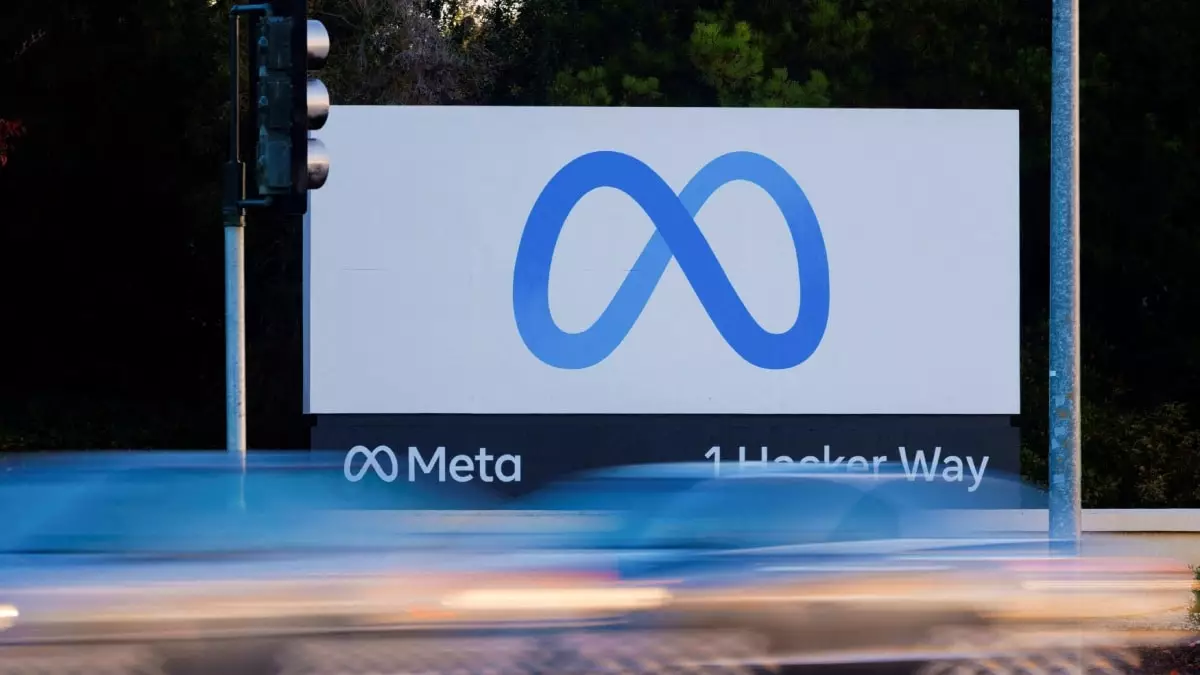In a significant stride toward enforcing fair competition in the tech industry, Meta Platforms Inc. has been reprimanded by European Union (EU) regulators with a staggering fine of €798 million ($841 million), a decision marking the company’s inaugural penalty for breaching EU antitrust regulations. This ruling, which challenges Meta’s longstanding practices, particularly concerning their popular Facebook Marketplace, raises important questions about the future of competitive advertising and the digital marketplace.
The European Commission’s ruling centers on the practice of tying Facebook Marketplace, an online classified ad service, to the larger Facebook social network. EU antitrust chief Margrethe Vestager emphasized that Meta leveraged its dominant position to skew fair trading conditions against rival platforms. “Meta tied its online classified ads service Facebook Marketplace to its personal social network Facebook and imposed unfair trading conditions on other online classified ads service providers,” Vestager stated. This unfair advantage allowed Meta to enhance its Marketplace service by utilizing data collected from its competitors, raising serious concerns about its monopolistic practices.
The implications of the fine extend beyond just a significant monetary penalty; they underscore a systematic examination of the tech giant’s business practices, particularly concerning how it capitalizes on its massive user base to marginalize competitors in the second-hand goods market. The fine serves as a clear signal that the EU is serious about combating practices that disadvantage competitors and reducing market diversity.
This ruling arrives during a turbulent period for Meta. The challenges continue to mount, as a recent court decision allowed the Federal Trade Commission’s (FTC) antitrust case against Meta to proceed to trial. Additionally, political dynamics have shifted, with Donald Trump’s recent electoral victory inevitably impacting the social media landscape. Trump’s condemnation of Facebook, labeling it as an “enemy of the people,” has invigorated emerging platforms like Bluesky, escalating competition for Meta.
The emotional deterioration of public trust and investor confidence is evident as well; Meta’s stock took a slight hit of one percent following the announcement of the EU’s fine. This cumulative pressure could significantly hamper the company’s ongoing efforts to diversify its business and retain its footing in the social media sphere as rivals leverage Meta’s challenges to gain market share.
Vestager’s management of antitrust issues in the tech sector has garnered attention over the past decade, paving the way for initiatives that hold tech companies accountable for anticompetitive behaviors. By levying fines exceeding €8 billion against Google, the EU has set a precedent, demonstrating that large tech firms are not above the law.
Instances like Meta’s fine against its Marketplace services illustrate the EU’s commitment to a competitive environment, prompting calls for enhanced regulations globally. In juxtaposition, the EU previously allowed Amazon to sidestep penalties for similar infractions by agreeing to implement changes in its business practices. This highlights the varying degrees of scrutiny and regulation faced by tech companies across different regions, shining a light on inconsistencies in regulatory frameworks.
The EU’s moves align with the implementation of the new Digital Markets Act (DMA), which seeks to establish stricter antitrust guidelines for tech firms. This legislation aims to create a conducive environment for competition, ensuring that new entrants can effectively contend with established corporations, thereby fostering innovation and consumer choice.
Moreover, this development could also foreshadow a new wave of regulatory actions directed at other technology powerhouses. As the DMA gains traction, Apple Inc. faces an impending first fine for non-compliance, signaling that no major tech company can afford to ignore the changing landscape of regulation in Europe.
In response to this monumental ruling, Meta plans to challenge the decision in the courts, a process likely to extend for years. The company argues that the fine disregards the realities of a flourishing European market and unfairly targets incumbent firms while providing leeway to new entrants. Nevertheless, such a strategy may not address the underlying issues of competition and fairness that regulators have drawn attention to.
As Meta continues to navigate this tumultuous landscape of regulatory scrutiny and competitive pressures, it must adapt its strategies accordingly. The company is already revising ad targeting methods on Facebook and Instagram as part of its efforts to align with regulatory expectations and alleviate investigative pressures.
As Meta battles against significant regulatory setbacks, the outcomes of these decisions will not only define the company’s trajectory but also set critical precedents for the entire digital marketplace. The question remains—how will Meta respond to this new normal of stringent scrutiny and evolving expectations in the world of big tech?

